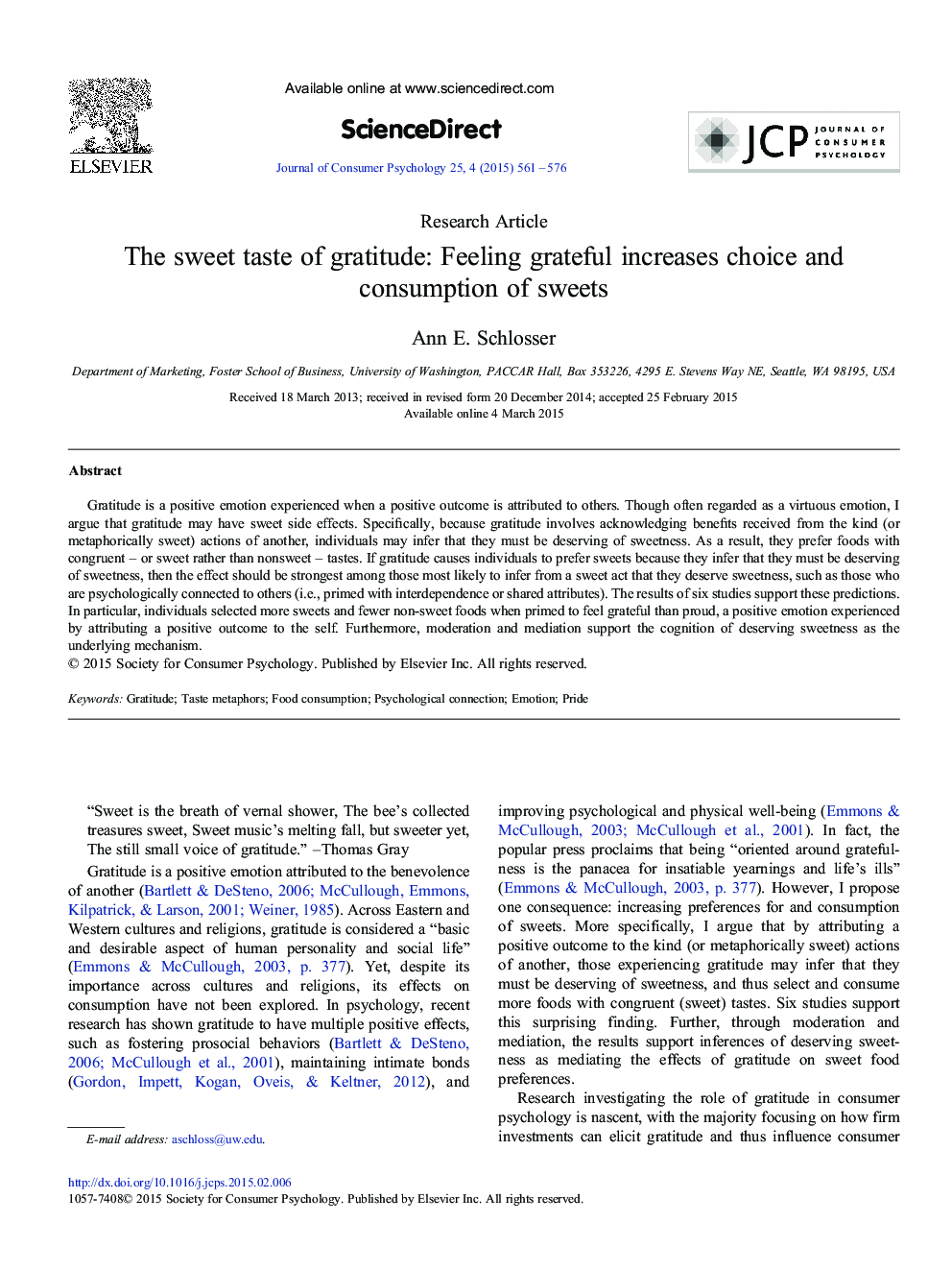| Article ID | Journal | Published Year | Pages | File Type |
|---|---|---|---|---|
| 882016 | Journal of Consumer Psychology | 2015 | 16 Pages |
Gratitude is a positive emotion experienced when a positive outcome is attributed to others. Though often regarded as a virtuous emotion, I argue that gratitude may have sweet side effects. Specifically, because gratitude involves acknowledging benefits received from the kind (or metaphorically sweet) actions of another, individuals may infer that they must be deserving of sweetness. As a result, they prefer foods with congruent – or sweet rather than nonsweet – tastes. If gratitude causes individuals to prefer sweets because they infer that they must be deserving of sweetness, then the effect should be strongest among those most likely to infer from a sweet act that they deserve sweetness, such as those who are psychologically connected to others (i.e., primed with interdependence or shared attributes). The results of six studies support these predictions. In particular, individuals selected more sweets and fewer non-sweet foods when primed to feel grateful than proud, a positive emotion experienced by attributing a positive outcome to the self. Furthermore, moderation and mediation support the cognition of deserving sweetness as the underlying mechanism.
